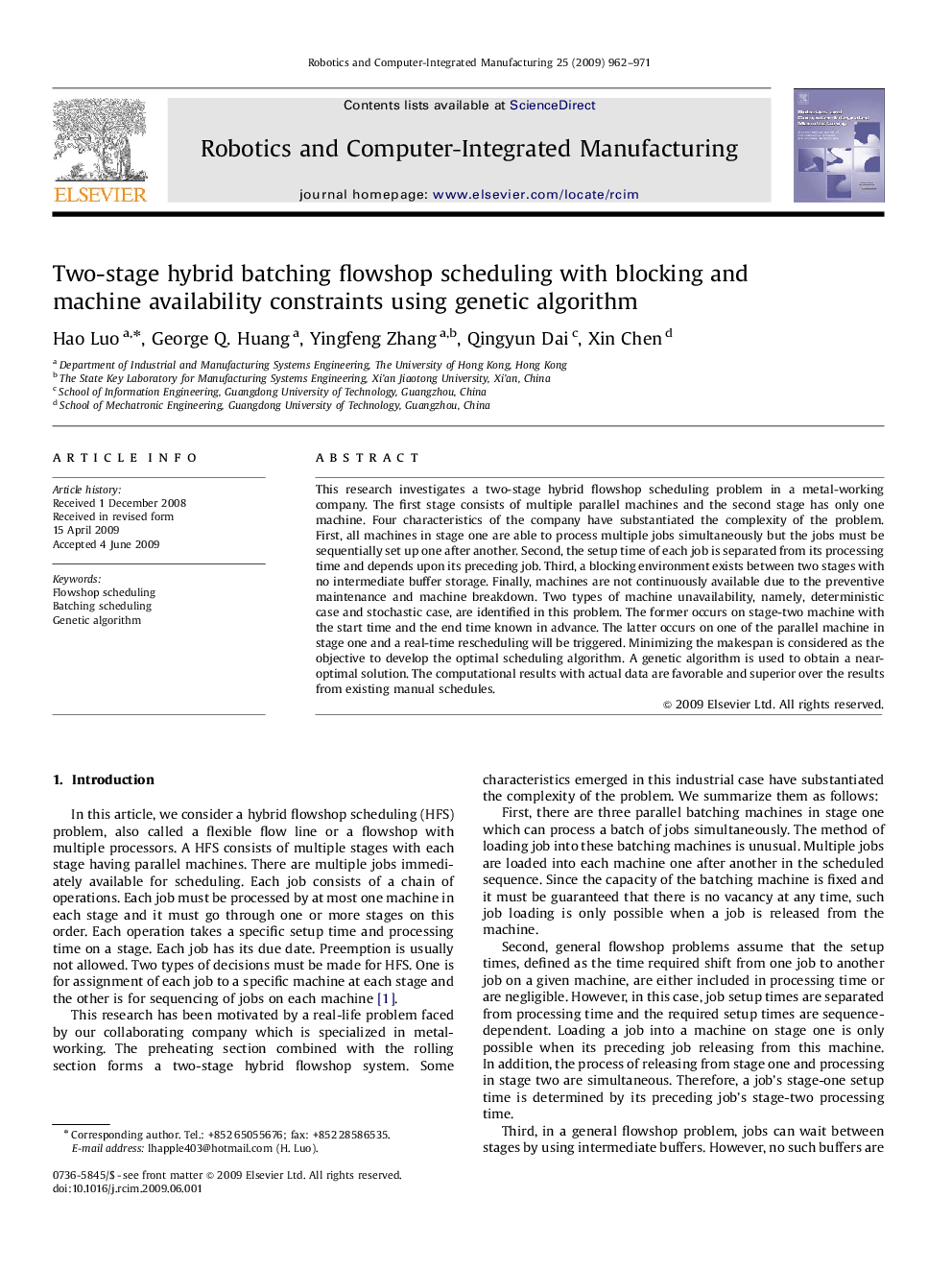| Article ID | Journal | Published Year | Pages | File Type |
|---|---|---|---|---|
| 413750 | Robotics and Computer-Integrated Manufacturing | 2009 | 10 Pages |
This research investigates a two-stage hybrid flowshop scheduling problem in a metal-working company. The first stage consists of multiple parallel machines and the second stage has only one machine. Four characteristics of the company have substantiated the complexity of the problem. First, all machines in stage one are able to process multiple jobs simultaneously but the jobs must be sequentially set up one after another. Second, the setup time of each job is separated from its processing time and depends upon its preceding job. Third, a blocking environment exists between two stages with no intermediate buffer storage. Finally, machines are not continuously available due to the preventive maintenance and machine breakdown. Two types of machine unavailability, namely, deterministic case and stochastic case, are identified in this problem. The former occurs on stage-two machine with the start time and the end time known in advance. The latter occurs on one of the parallel machine in stage one and a real-time rescheduling will be triggered. Minimizing the makespan is considered as the objective to develop the optimal scheduling algorithm. A genetic algorithm is used to obtain a near-optimal solution. The computational results with actual data are favorable and superior over the results from existing manual schedules.
